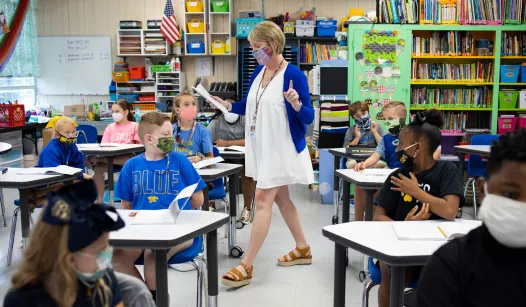In recent discussions surrounding educational reforms, Mississippi has emerged as a noteworthy example of how strategic choices can lead to significant improvements in student outcomes. Contrary to narratives that often paint the state as struggling, Mississippi’s educational system has shown remarkable progress, highlighting the importance of intentional decision-making in education.
Mississippi’s journey toward educational success can be attributed to a series of deliberate actions and reforms. The state has implemented various initiatives aimed at enhancing literacy rates, improving teacher training, and increasing accountability within schools. These efforts have led to notable advancements, particularly in reading proficiency among young students.
One of the key factors contributing to this success is the emphasis on early literacy. Mississippi has prioritized reading instruction in the early grades, recognizing that foundational literacy skills are crucial for long-term academic achievement. Through programs like the Mississippi Literacy-Based Promotion Act, the state has established clear benchmarks for reading proficiency and provided resources to help educators support struggling students. As a result, Mississippi has seen a significant increase in third-grade reading scores, demonstrating that focused interventions can yield positive results.
In addition to early literacy initiatives, Mississippi has also invested in teacher training and professional development. The state has recognized that effective teaching is essential for student success, and as such, it has implemented programs to equip educators with the skills and knowledge they need to thrive in the classroom. By fostering a culture of continuous improvement among teachers, Mississippi is ensuring that students receive high-quality instruction that meets their diverse needs.
Accountability measures have also played a crucial role in Mississippi’s educational transformation. The state has adopted a robust system for evaluating school performance, which includes standardized assessments and regular progress monitoring. This transparency allows educators, parents, and policymakers to identify areas for improvement and celebrate successes. By holding schools accountable for student outcomes, Mississippi is fostering a sense of responsibility and encouraging a commitment to excellence in education.
While Mississippi’s progress is commendable, it is important to acknowledge the challenges that remain. Disparities in educational access and resources still exist, particularly in rural and underserved communities. Addressing these inequities will require ongoing efforts and collaboration among stakeholders at all levels, including state leaders, educators, and families.
In contrast to Mississippi’s proactive approach, other regions, such as Chicago, have faced criticism for their handling of educational challenges. The Chicago Teachers Union has often been at the forefront of debates regarding educational policy, yet some argue that their strategies have not effectively addressed the needs of students. This serves as a reminder that successful education reform requires a willingness to embrace change and prioritize student outcomes over entrenched interests.
Ultimately, Mississippi’s experience serves as a powerful example of how educational success is not merely a matter of circumstance but a choice. By making informed decisions and prioritizing the needs of students, states can create a more equitable and effective educational system. As we look to the future, it is essential for all stakeholders to learn from Mississippi’s journey and remain committed to fostering an environment where every child has the opportunity to succeed.
